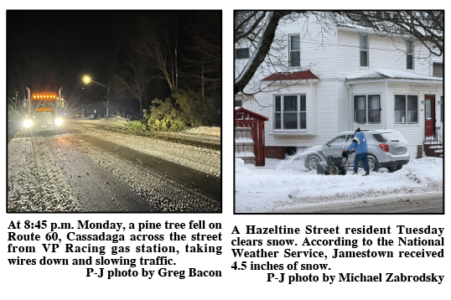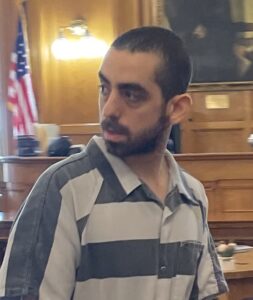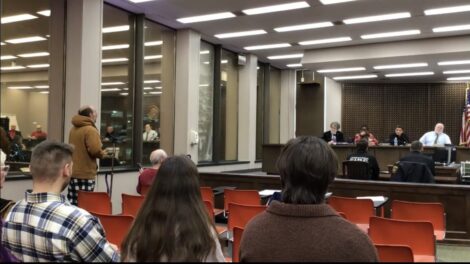Extension Of State’s COVID Emergency Ignites Backlash
ALBANY — Gov. Kathy Hochul’s latest extension of her emergency powers to manage the pandemic is facing questions and criticisms at a time when federal health officials say they have ended their recommendations that people quarantine if they have been exposed to COVID-19.
“We shouldn’t be in a continual state of emergency, especially when we know what the issues are,” said Rachael Fauss, senior research analyst for Reinvent Albany, a good government group.
“At this point, this should be the purview of the Legislature,” Fauss added.
Although many local government boards continue to allow the public to be physically present at their meetings, the governor’s extension of the emergency order effectively suspends the Open Meetings Law requirement of an open-door rule for attendance. The government panels and commissions are only required to open their meetings virtually, via feeds on Zoom and similar apps.
It also allows the Hochul administration to bypass normal competitive bidding requirements. Additionally, Hochul’s order limits the ability of state Comptroller Thomas DiNapoli’s office to pursue its oversight function of certain state procurement actions before payment is approved for contractors.
DiNapoli’s office, contacted by CNHI, had no immediate comment when asked if officials there were concerned about the agency’s ability to monitor the Hochul administration’s procurement moves for the duration of the emergency order. DiNapoli, a Democrat, is a political ally of the Democratic governor.
The controversy has filtered into the governor’s race, with Rep. Lee Zeldin, the GOP nominee for the state’s highest office, charging that the emergency order is breeding “rampant pay to play corruption.”
Hochu responded to that controversy by saying the fact that one of her campaign donors ended up with a state contract worth more than $600 million for coronavirus test kits allowed the state to reopen schools last January, preventing kids from “sitting home another semester.”
Sen. Peter Oberacker, R-Otsego County, said the public’s right to know about the deliberations of government bodies is being hindered by Hochul’s extension of the emergency order. He noted many people in his district lack broadband and thus will be unable to monitor the August 23 meeting of the Climate Action Council.
Oberacker said he is concerned that council could end up embracing policies that increase energy prices and have “a crushing blow” on his constituents and employers in his district.
Hochul, meanwhile, has indicated school children and teachers can return to New York classrooms this fall with no masking requirement in effect. She has continued to attend public events, with some officials expecting her to attend the usually crowded opening day next week of the New York State Fair just outside Syracuse, though her schedule has not yet been made public.
Hochul’s most recent extension of the emergency order expires Sept. 12. She has the authority to extend it again, however.
When the emergency does expire, according to Hochul spokeswoman Hazel Crampton-Hays, government bodies will be required to allow the public to attend their meetings, with the option of also allowing virtual access, in what is known as a hybrid model for dealing with open meetings.
“The Governor has supported the use of a hybrid model going forward, once the COVID pandemic has ended,” Crampton-Hays said.
Senate Republican Leader Rob Ortt of Niagara County, in a letter to Hochul Wednesday, urged the administration to update the state’s pandemic guidance to reflect recent changes made in the recommendations of the Centers for Disease Control and Prevention. and drop New York’s remaining COVID restrictions.
“New Yorkers have suffered under this pandemic for over two years, and it is long overdue that our policies focus on protecting the most vulnerable from serious illness rather than broad restrictions on the public,” Ortt said.
William Hammond of the Empire Center for Public Policy, an Albany watchdog organization, noted the demand for hospital beds to treat people sickened by COVID-19 has eased considerably since the height of the pandemic.
“There is no short-term, urgent crisis at this point,” Hammond said. He said one of the key impacts of Hochul’s order is how it suspends the requirements allowing oversight by the comptroller on contracts.
Hochul, reacting last week to the announcement the CDC was relaxing its rules, said in New York her administration’s priority remains “the safety of our children.”
“…We do see a trend over the last two years now, that cases tend to go up somewhat in the fall after being suppressed in the summer when people are outdoors,” she said. “So we’re working to see what the CDC has done, how that affects what we have in place.”





